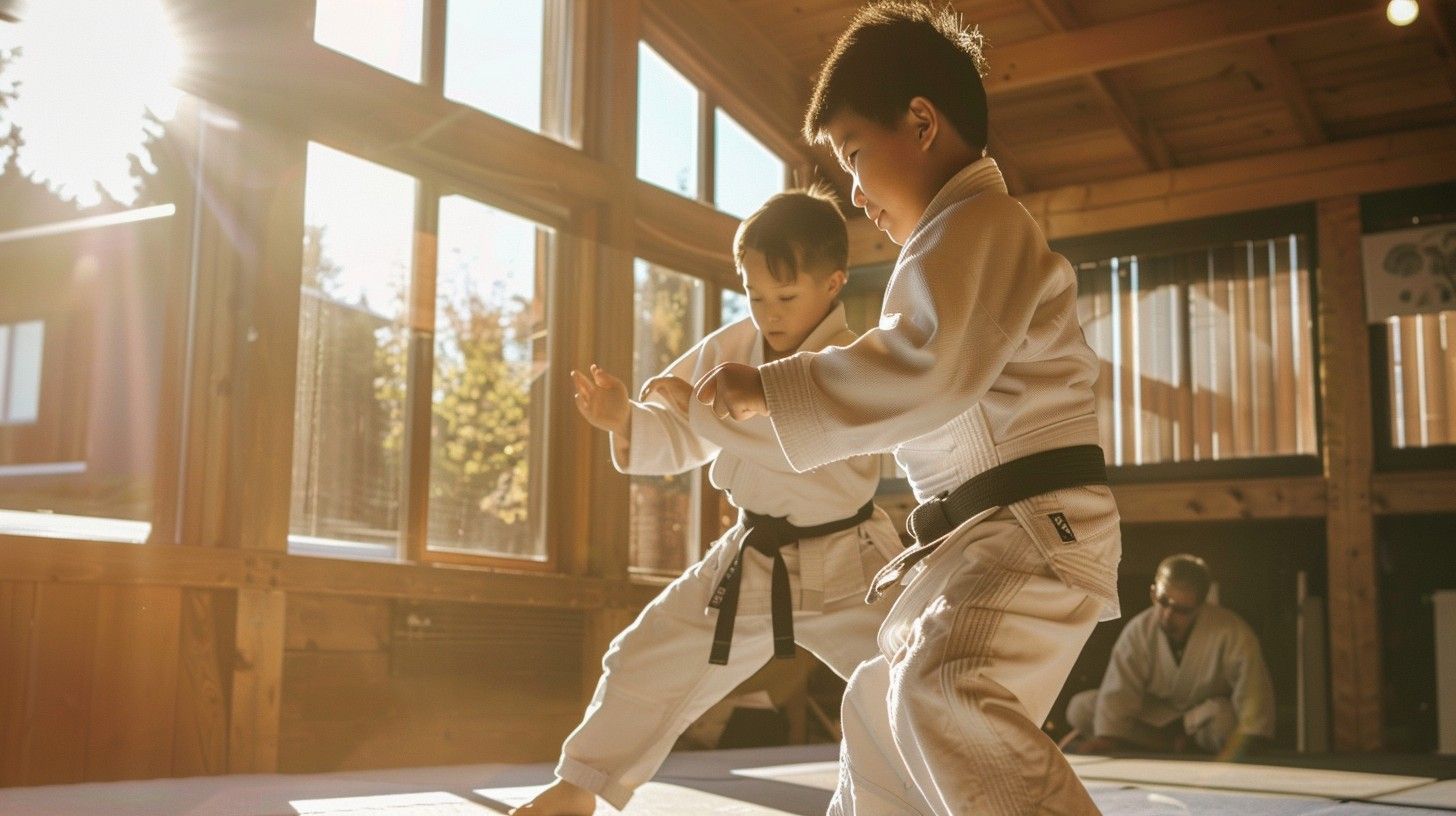Martial Arts Benefits for Kids
Martial Arts Benefits for Kids

Martial arts offer a wealth of valuable lessons for kids, both in terms of physical skills and personal development. Here are some of the best lessons that children can learn through martial arts training:
1. Discipline
Martial arts require a high level of discipline, as students must adhere to strict training schedules, follow instructions, and practice consistently. This can translate into other areas of life, such as schoolwork, chores, and personal goals.
2. Respect
One of the core values in martial arts is respect—respect for instructors, fellow students, and oneself. Kids learn the importance of bowing to show respect before and after class, addressing instructors formally, and showing kindness and sportsmanship toward their peers.
3. Focus
Martial arts emphasize the importance of concentration and focus. Whether it's learning a new move, working through a routine, or performing in front of others, kids learn how to focus their attention and block out distractions, a skill that is useful both inside and outside the dojo.
4. Confidence
As children progress through their training, earn new belts, and develop their skills, they gain a sense of accomplishment and self-confidence. Martial arts help kids believe in their abilities and understand that they can achieve their goals through hard work and perseverance.
5. Self-Control
Martial arts teach self-regulation—controlling one's impulses, emotions, and reactions. Kids learn that being a martial artist isn't about fighting or aggression, but about exercising control, both physically and emotionally.
6. Perseverance
Learning martial arts can be challenging, and students often encounter setbacks. Martial arts teach children to persevere through difficulties, whether they're struggling with a move or facing tough competition. They learn that growth comes through persistence, even when things don't come easily.
7. Physical Fitness
Martial arts offer a fun and engaging way to stay active, helping kids improve their strength, flexibility, coordination, balance, and overall health. These physical benefits extend beyond the dojo and contribute to a child's overall well-being.
8. Self-Defense
While not the primary focus in many martial arts programs for kids, the ability to protect oneself is an important lesson. Martial arts teach self-defense skills in a controlled environment, helping kids feel more empowered and safe.
9. Goal Setting
Many martial arts programs use a belt system, with each belt level representing a step forward. This structure teaches kids how to set and achieve short-term and long-term goals. It reinforces the idea that hard work and dedication lead to progress.
10. Teamwork
Although martial arts are often seen as individual pursuits, students also learn to work with others. Many classes involve sparring with partners, group drills, and team-building exercises that foster cooperation and mutual support.
11. Humility
Martial arts emphasize the importance of humility. While achieving a higher rank is a point of pride, students are taught that there's always more to learn and that others may be better in certain areas. This helps foster a sense of humility and openness to improvement.
12. Mindfulness
Martial arts require mental awareness, not just physical prowess. Kids learn mindfulness through movements and techniques that require them to be present in the moment, paying close attention to their surroundings, bodies, and thoughts.
13. Conflict Resolution
Martial arts teach that true strength isn't about physical power but about resolving conflicts peacefully. Children learn how to control their temper and, in some styles, understand when it's better to walk away from a confrontation rather than resort to violence.
14. Gratitude
Practicing martial arts often involves reflecting on how far one has come, which can cultivate a sense of gratitude for the opportunity to learn and grow. Kids learn to appreciate their instructors, peers, and the art itself.
15. Mental Toughness
Martial arts often involve pushing through discomfort or challenging situations—whether it’s during sparring or mastering a difficult technique. This develops mental toughness and the ability to stay calm and composed under pressure.
16. Emotional Regulation
Martial arts help kids to recognize and manage their emotions. Learning to remain calm during stressful situations, whether it's dealing with a difficult move or a competitive opponent, is a valuable skill that can extend to other life situations.
These lessons help build character, resilience, and a sense of community. Kids who train in martial arts not only improve their physical abilities but also develop valuable life skills that can benefit them in many areas of life.


